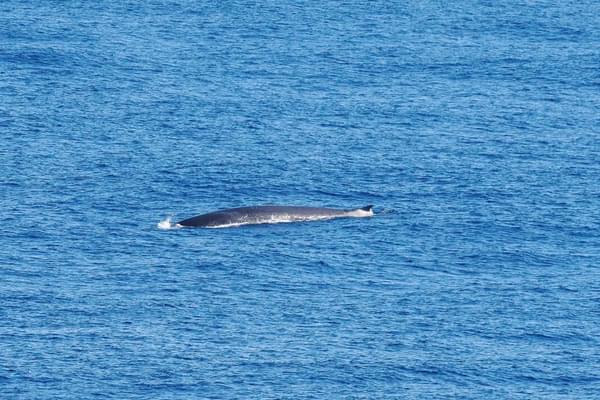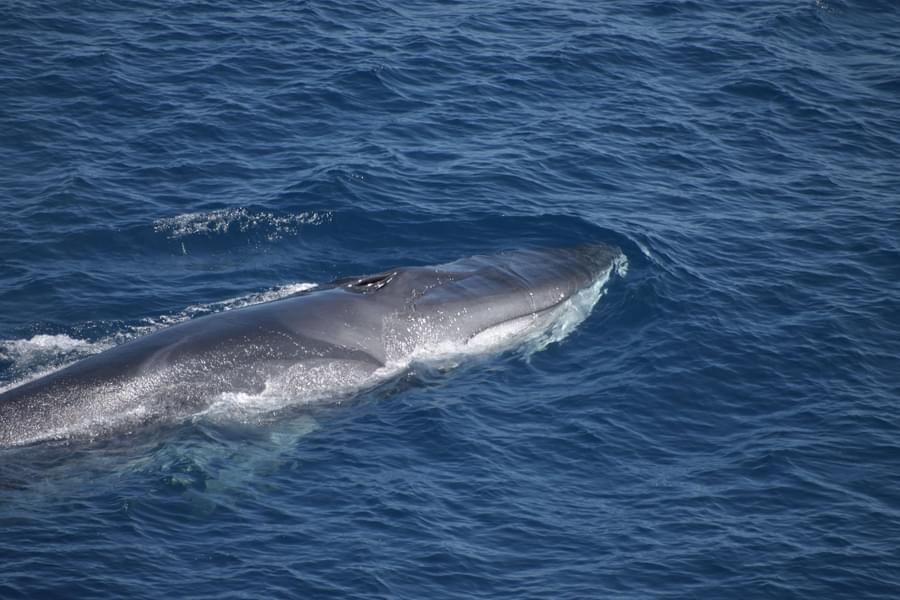Our blog last week gave some details around Japan’s vast (both in size and cost) whaling “MotherShip” the Kangei Maru.
While Japanese authorities stick to their line that the ship has no designs on the Antarctic Ocean, a Japanese news article has thrown more light on the country’s whaling plans.
And it's not good news for fin whales. One of the limitations to Japan’s whaling operations until now has been that in order to obtain larger catches, a massive slipway was needed to haul onboard whales such as the 70-ton fin whale. Conveniently for Japan, their huge, new Kangei Maru ship can do just that, and so begs the inevitable question about whether this might have been the plan all along.
Japan currently allows the sale of three whale species – Bryde’s, minke and sei. Now, the Fisheries Agency proposes to add fin whales to the catch list after stock surveys showed sufficient recovery of the species in the North Pacific.
The Japanese government supports the sustainable hunting of large fin whales to promote the country‘s “traditional food culture”, chief cabinet secretary Yoshimasa Hayashi said.
“Whales are an important food resource and we believe they should be sustainably utilised just like any other marine resources, based on scientific evidence,” Mr Hayashi told reporters last week.
That’s not a sustainable argument for an unsustainable food source. Apart from the fact that “traditional food cultures” globally such as bushmeat, abalone and turtle have played a part in bringing some wildlife species to the verge of extinction, the appetite for whale meat in Japan is plummeting. People once ate blackbirds and hedgehogs here in the UK but I doubt anyone would be foolish enough to make the argument that as part of the UK’s traditional food culture we should start that up again.
The Japanese Fisheries Agency has argued that there are now “sufficient stocks of fin whales”, in the North Pacific, and so on that basis whaling could resume. What is “sufficient” and what is “right” are two entirely different things.
In the meantime Japan continues to be reproached by the international community for engaging in an activity which has no place in modern society, and which most of the world rejected decades ago, all for something no-one wants anymore anyway.

Despite commercial whaling decimating whale populations globally for over a hundred years, there are still countries which think it is acceptable to hunt and kill whales for profit. Our work plays a vital role in helping to put pressure on UK and other governments to drive an end to commercial whaling globally, so please support us at www.orca.org.uk/donate to help us continue this important work.

